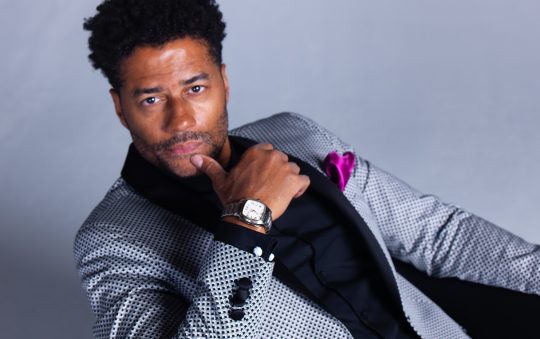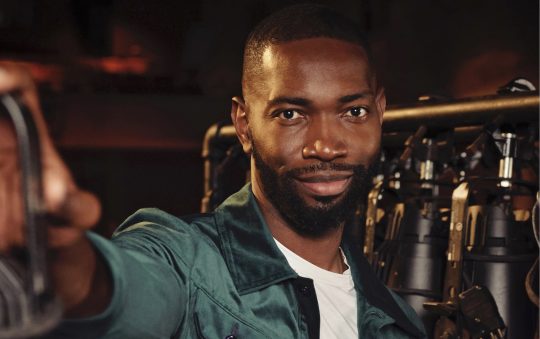
The race to becoming the next President of the United States is becoming more and more narrow as candidates drop like flies in the poll percentages, according to some of polls from Super Tuesday.
As of press time, Democrat Hillary Clinton and Republican Donald Trump swept the South on Super Tuesday becoming the front-runners in states–Georgia, Tennessee, Alabama and Virginia.
Tuesday was the biggest single delegate haul for presidential candidates this season. Democrats voted in 12 states with 859 delegates at stake. Republicans voted in 12 states with 595 delegates up for grabs. Democratic candidates Bernie Sanders and Hillary Clinton went head to head in their party’s primary. While Donald Trump, Ted Cruz and Marco Rubio took the lead in the Republican primaries.

Clinton also picked up wins in Massachusetts, Arkansas and Texas. Trump carried GOP contests in Arkansas, Vermont and Massachusetts.
“America is strong when we are all strong,” said Clinton during her Super Tuesday speech. “We have to make America whole and fill in what has been hallowed out.”
According Associated Press, 80% of Black voters, both men and women, supported Clinton in Alabama, Arkansas, Virginia, Georgia, Tennessee and Texas. Sanders showed strength with young voters, carrying the majority of those under the age of 30.
Ms. Clinton already had a strong support system going into Super Tuesday with an overwhelming backing of Black support when she landed victory in South Carolina’s Democratic presidential primary over the weekend of Feb. 27. Her campaign trail is hoping to win over the hearts of Southern states on Super Tuesday voting.
Clinton became the Democratic party’s front-runner when she received 74% in support in South Carolina over Sen. Bernie Sanders, who had 26% of the votes. Exit polls stated that six out of 10 voters were African Americans who voted for Clinton in South Carolina.

In recent years, she has gained popularity with Black voters after a hard run back in 2008. Eight years ago, many Black voters were offended by the remarks Clinton made, which were deemed “racially motivated”, during the nomination battle she had with then- Senator Barack Obama.
There are many contenders to her strength with the Black vote: she has a strong record with the community; her politics cater to minorities and the ability to recognize her name with the Black vote. Many deemed her husband Bill Clinton as an honorary “Black” president during his presidency. He received heavy support from the Black community in the 1990s. Bill, who is from Arkansas, did well among Southern African Americans appearing “comfortable” to African American especially after he appeared on the Arsenio Hall show on his campaign trail. So, many will associate Bill’s popularity with Hillary’s making the two.
As far as the Black votes goes for the Republican primary frontrunner Donald Trump— it looks fairly slim. Trump is facing much backlash from the Black community for his recent events of having Black Lives Matters protestors escorted out at his Radford, Virginia, rally and throwing out a group of Black students from his recent rally in Georgia.
About 30 students were escorted out of Trump’s rally in Valdosta, Georgia. Students told USA Today that they were silently at the top of the bleachers during the rally on Feb. 29 on the campus of Valdosta State University.
A Trump spokeswoman denies the incident as a “request of the candidate” or the presidential campaign. The Secret Service contradicted the students’ statements that federal agents were the ones called to lead them out of the building. They stated that Trump staff and local law enforcement officials handle the students. Officials later stated that Trump’s security had the authority to ask the students to leave he, because he was the one who rented the school’s venue.
“The only reason we were given was that Mr. Trump did not want us there,” said 22 year-old marketing student Brooke Gladney to USA Today.
The student protestors planned to sit in silent protest, but were immediately escorted out by security officials before Trump began his speech. Several attendees recorded the video and posted it to social media. In response to accusations of racially motivating these escorts, Trump’s representations continue to deny the fact that it’s a race issue. “The campaign had no knowledge of this incident,” said Hope Hicks, a spokeswoman for the Trump campaign.
Alongside these incidents, many are talking about Trump’s refusal to address receiving money from former Ku Klux Klan leader David Duke in the early stages of his campaign.
One candidate many have heard little about during Super Tuesday is Republican candidate Ben Carson. The rumor of a Carson dropout started the week leading into Super Tuesday as the buzz of his campaign seemed to somewhat fizzle out. However, Carson’s communications strategist, Jason Osborne said there is still a chance for Carson. “A lot can change within a week, a lot can change within two weeks. At this point, anything can happen,” he said.
“There is always the possibility that people will awaken and recognize that just what they were asking for is what I have presented for them,” Carson said on MSNBC.







